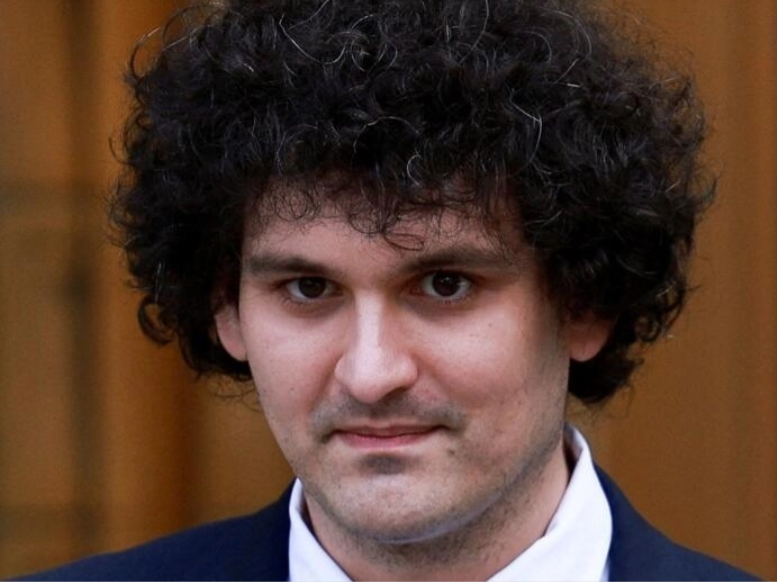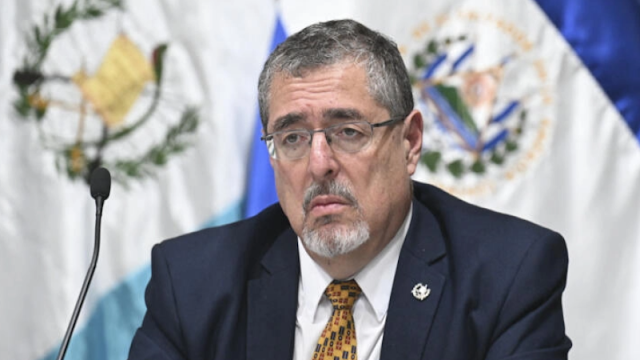Guatemalan electoral authority suspends party of President-elect Arevalo
The electoral body in charge of regulating Guatemala’s political groups, known as the Citizen Registry, announced the suspension Thursday of President-elect Bernardo Arevalo’s Seed Movement party.
Issued on: 03/11/2023 - 03:17, 1 min
Guatemalan President-elect Bernardo Arevalo attends a meeting with magistrates of the Supreme Electoral Tribunal at the headquarters of the Supreme Electoral Tribunal in Guatemala City on October 2, 2023. © Johan Ordoñez, AFP
A judge had granted the party’s suspension at the request of the Attorney General’s Office back in July, shortly before Arevalo was declared the second-place finisher in the initial round of voting. But a higher court ruled that the party could not be suspended during the election cycle, which only ended Oct. 31.
Arevalo went on to win a runoff in August and is scheduled to take office in January.
However, since the original judge’s order for the party’s suspension remained pending, the Citizen Registry said Thursday it executed the order.
The Attorney General’s Office has alleged wrongdoing in the way the party collected the necessary signatures to register years earlier. Observers say Attorney General Consuelo Porras is trying to meddle in the election to thwart Arevalo and subvert the will of the people.
Luis Gerardo Ramirez, the registry’s spokesperson, said the party cannot hold assemblies or carry out administrative procedures.
Ramírez also said the party could appeal the registry’s decision to the Supreme Electoral Tribunal, but since the order came from a judge the appeal would need to go through a court.
"The suspension is unprecedented, no criminal judge could suspend a party because it’s illegal," said Samuel Perez, leader of the Seed Movement’s lawmakers in the congress. "The problem is that the judge’s suspension isn’t legal, it’s political."
The U.S. State Department’s Deputy Assistant Secretary for Western Hemisphere Affairs Eric Jacobstein told journalists during a visit to
Guatemala Thursday that the party’s suspension was worrisome as an apparent way to interfere to with Arevalo’s transition to office.
It remained to be seen how the order would affect other institutions such as Congress, where Seed Movement lawmakers were supposed to eventually take their seats.
Opponents of the Seed Movement in Congress already had declared those incoming lawmakers independent, meaning they could not chair committees or hold other leadership positions. A court at the time had ruled that the Congress couldn't deny Seed Movement lawmakers leadership positions on grounds that the party couldn't be suspended during the election cycle.
(AP)
Can Latin America's biggest state avoid being completely taken over by drug lords?
Brazil's army deployed to transport hubs in crackdown
on organised crime
Brazil's President Luiz Inacio Lula da Silva said Wednesday he is sending the armed forces to boost security at some of the country's most important airports, ports and international borders as part of a renewed effort to tackle organised crime in Latin America's largest nation.
Issued on: 02/11/2023 - 01:17; 3 min
Planes sit on the tarmac at Galeao International Airport in Rio de Janeiro, Brazil, on November 1, 2022.
© Pablo Porciuncula, AFP
The decision comes days after members of a criminal gang set fire to dozens of buses in Rio de Janeiro, apparently in retaliation for the police slaying their leader's nephew.
"We have reached a very serious situation," Lula said at a press conference in Brasilia after signing the decree. "So we have made the decision to have the federal government participate actively, with all its potential, to help state governments, and
Brazil itself,
to get rid of organised crime."
Brazil will mobilise 3,600 members of the army, navy and air force to increase patrols and monitor the international airports in Rio and Sao Paulo, as well as two maritime ports in Rio and Sao Paulo's Santos port, the busiest in Latin America – and a major export hub for cocaine.
The deployment is part of a government's broader plan that includes increasing the number of federal police forces in Rio, improving cooperation between law enforcement entities and boosting investment in state-of-the-art technology for intelligence gathering.
That is, after they pay for the new busses, I presume.
Attempt to 'suffocate' militias
State and federal authorities have said in recent weeks they want to "suffocate" militias by going after their financial resources.
Rio’s public security problems go back decades, and any federal crackdown on organised crime needs to be supported by a far-reaching plan, the fruits of which might only be seen years from now, according to Rafael Alcadipani, a public security analyst and professor at the Getulio Vargas Foundation, a university in Sao Paulo.
"The federal government is being rushed into this due to previous lack of action," said Alcadipani. "The government is trying, but the chance of this not working is huge ... This is an emergency plan, something being done last minute as though it were a problem that arose just now, but it isn't."
Brazil's Justice Minister Flávio Dino said the measures announced Wednesday are part of a plan being developed since Lula took office on Jan. 1, and the result of months of consultations with police forces, local officials and public security experts.
Recent wave of unrest
The latest wave of unrest in Rio began Oct. 5, when assassins killed three doctors in a beachside bar, mistaking one of them for a member of a militia.
The city's powerful militias emerged in the 1990s and were originally made up mainly of former police officers, firefighters and military men who wanted to combat lawlessness in their neighbourhoods. They charged residents for protection and other services, but more recently moved into drug trafficking themselves.
There has since been increased pressure for the state and federal governments in Brazil to come up with a plan and demonstrate they have a handle on public security in the postcard city.
On Oct. 9, days after the doctors were killed, Rio state government deployed hundreds of police officers to three of the city’s sprawling, low-income neighbourhoods.
And on Oct. 23, Rio's police killed Matheus da Silva Rezende, known as Faustao, nephew of a militia's leader and a member himself. In a clear show of defiance, criminals went about setting fire to at least 35 buses.
On Wednesday, federal police in Rio said it had arrested another militia leader and key militia members in Rio das Pedras and Barra da Tijuca, both in Rio state. They also seized several luxurious, bullet-resistant cars, a property and cash.
(AP)





No comments:
Post a Comment